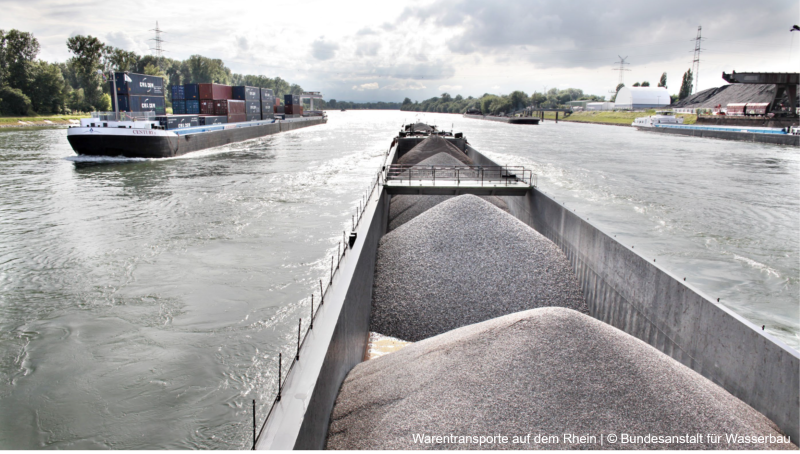 About us
About us
28/02/2023
Travel assistant for inland navigation: RUBIN research project launched
How long does it take to get from Mannheim to Dortmund? Including after-work traffic and lots of rain? And that's via the waterway!
RUBIN, the travel support assistant for inland navigation, answers precisely these questions.
With the kick-off event on 28 February 2023, the project partners, Alberding GmbH and the Federal Waterways Engineering and Research Institute (BAW),
gave the official starting signal for the project, which is supported by the BMDV's Modernization Fund (mFUND).
Over the next three years, methods are to be developed, data obtained and refined, and travel support tested in practice. The prerequisite for this is the participation of strong project partners,
such as the General Directorate of Waterways and Shipping, the Federal Institute of Hydrology, Main-Schifffahrtsgesellschaft e. G. and the Jaegers shipping company.
RUBIN supports the planning of shipping voyages by suggesting routes with expected voyage times as well as maximum possible transport volumes and cargo heights.
Future traffic situations as well as expected water levels and current conditions are taken into account. The basis for this is provided by forecast models that
simulate ship movements, water levels and flow velocities. These valuable interim results will be made publicly available and thus also available to other services.
Throughout the entire voyage period, RUBIN updates the forecast arrival times and unloading depths and actively informs the stakeholders involved in the transport
process via various media. Depending on the voyage progress, traffic volume, lock utilization and flow conditions, RUBIN provides the skipper with suggestions for
a resource-saving mode of operation during the voyage. The goal of RUBIN is to increase the efficiency of waterway transport and better integrate it into multimodal
transport chains.
„The precise determination of travel time and unloading depths are important prerequisites for optimizing the loading, the route and the driving style
of inland vessels. In the future, the travel assistant will enable a more efficient transport of goods on the waterway and thus strengthen the competitiveness
of inland navigation,“ Jürgen Alberding, managing director of Alberding GmbH and consortium leader of the research project, describes his expectations for RUBIN.
The head of the BAW, Prof. Dr.-Ing. E.h. Christoph Heinzelmann, adds: „Digitalization and automation in inland navigation offer enormous potential and can
make shipping safer, more efficient, and more climate and environmentally friendly. RUBIN provides an important building block for this.“
The RUBIN project is being funded by the German Federal Ministry of Digital Affairs and Transport (BMDV) as part of the mFUND innovation initiative
with a total of around 475,000 euros. The project results are expected to be available by November 2025.
Further information on the project can be found here:
















